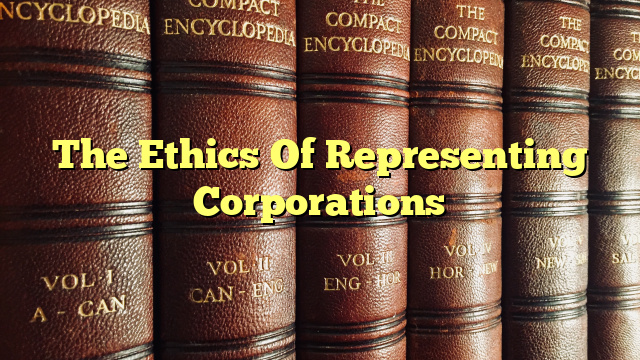Table of Contents
Corporations and Officers
When a lawyer represents a corporation, he or she is representing the company as an entity. This means that the lawyer cannot represent both the corporation and its officers. That is, the lawyer cannot provide legal advice to an individual officer of the corporation, unless the lawyer also represents that officer in an individual capacity. This is because the interests of the corporation and its officers are not necessarily the same. For example, the corporation may have an interest in protecting its assets, while an individual officer may have an interest in avoiding personal liability.
Ethical Conduct
The ethical conduct of lawyers is governed by a set of rules and regulations known as the Rules of Professional Conduct. These rules are designed to protect the public and ensure that lawyers provide competent, ethical legal services. The rules also provide guidance to lawyers regarding their behavior and the duties they owe to their clients.
The Client
When a firm represents a corporation, the client is the corporation itself. This means that the lawyer must act in the best interests of the corporation, and must not act in the interests of any individual associated with the corporation. This includes not only officers of the corporation, but also shareholders, creditors, and other stakeholders. The lawyer must also ensure that all information disclosed to the corporation is kept confidential, unless the lawyer has been given permission to disclose it.
In conclusion, when a law firm represents a corporation, the firm may not provide legal advice to any of the corporation’s officers in their individual capacity. The ethical conduct of lawyers is governed by the Rules of Professional Conduct, and the client of the law firm is the corporation itself. The lawyer must act in the best interests of the corporation and must keep all information disclosed to the corporation confidential.


Corporations must take into account ethical considerations when it comes to representation. Consider stakeholders’ interests too.
While corporations do have a right to be represented, it’s important to consider the ethical implications this can have. Too often, this practice overlooks issues of justice and accountability.